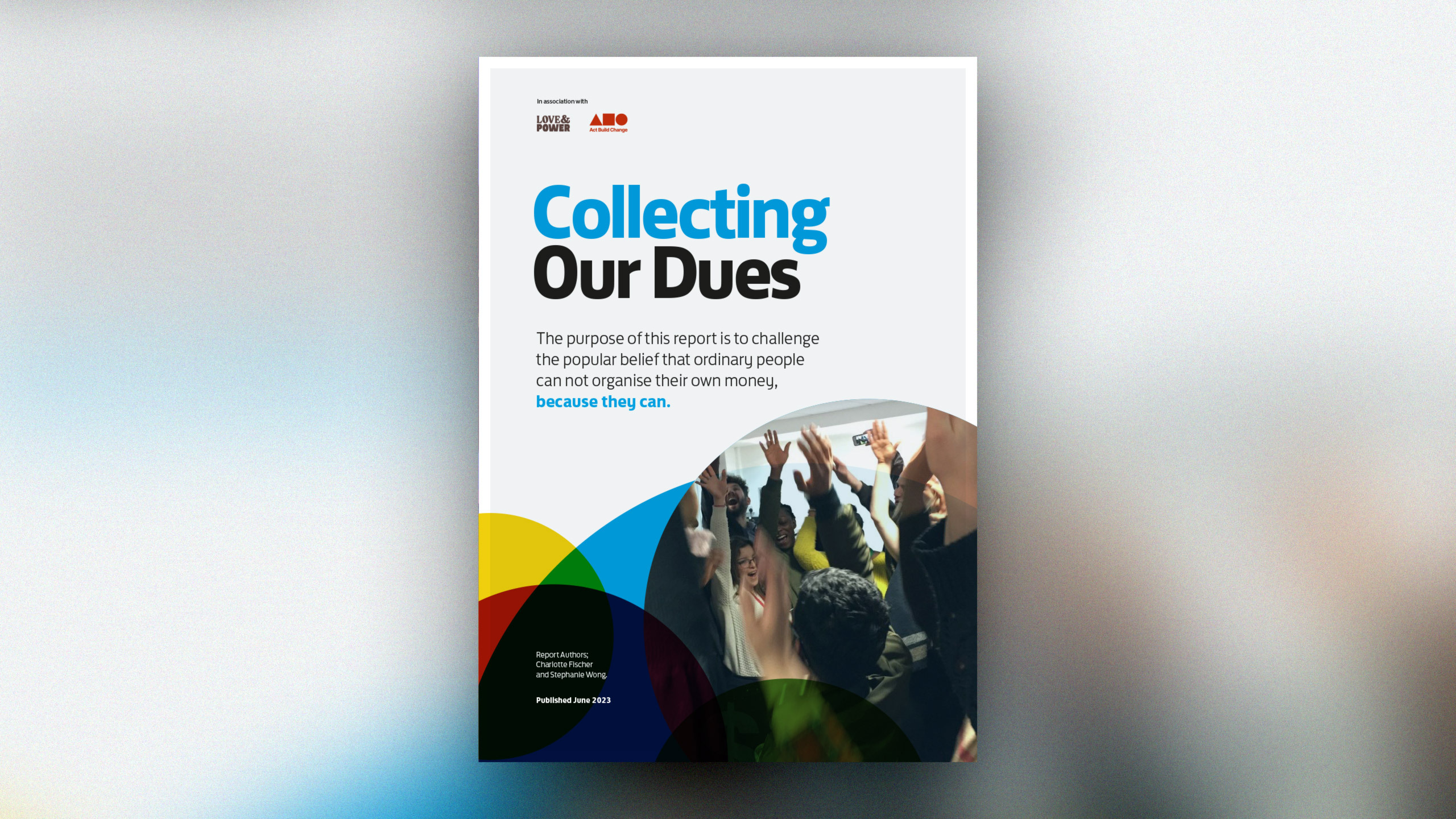Resources
Collecting Our Dues – a Report on How to Organise Our Money
A report to challenge the popular belief that ordinary people can not organise their own money; because they can.
Stephanie Wong | 28 Oct 2024

In every major struggle that has won and grown – from the Civil Rights Movement to the Suffragettes, from farm workers to the trade union movement, from the church to the African National Congress – the movement has organised the money of its members. Not only grants and wealthy philanthropists. The backbone of these movements was the regular, ordinary members who paid dues to fund the work.
Mass based membership movements are prolific in the United States and South Africa. In the UK, however, our third sector was predominantly built from wealthy people’s ‘largesse’ rather than major modern struggles.Our sector was born with roots of 19th century ‘beneficence’ of philanthropy, combined with the move to professionalised and less grassroots organisations from the 1980s onwards.
Our Research Questions
Act Build Change and Love & Power spoke to 23 people across 16 organisations. These ranged from unions – the large and small, political parties, large movements, small collectives, charities, co-operatives and academics. Of these organisations, 5 took hard membership dues from ordinary people and 8 took some money.
We sought to explore some key questions:
- How do membership organisations work in the UK?
- What are the difficulties we should be aware of?
- How do people decide what dues they charged?
- How do people make meaning out of it? Are there rituals and celebrations to learn from?
- Does ordinary people paying change the relationship people had with the organisation?
- What were the impacts and implications of who joined such organisations
Throughout our 23 conversations, we dove deep into topics such as membership rates, their impacts on the base, and the nature of the relationship between members and their respective organisations. We acknowledge that this is a challenging and complicated conversation, but we firmly believe that it is a necessary one. As we continue to learn and grow, we must recognize that money is a vital component of building collective power, and our research serves as a call to action towards that goal.
Who is the report for?
We’ve specifically written this report for any groups that consider themselves member organisations – organisations that see themselves as genuinely representing and being rooted in and built from a constituency of people, geography and/or issue.
Our Argument
In this report, we argue the gap of organisations that are built from ordinary people’s money, with some exceptions, such as trade unions and the religious congregations, is a fundamental block on the development of movement infrastructure in the UK.
This research is a love letter to the possibilities of what our movements could be. We believe solely chasing funder grant systems or contracts will not get us where we need to get to. We want to encourage people’s organisations to think about how they organise their money and the stake that ordinary people get to play in the work that affects their lives.
We believe that organising our own money is not just for cashflow. It is so much more than that. It creates new opportunities to create a culture and infrastructure that can lead to winning transformative change owned by the people who have the biggest stake in its future.
Our Thanks
The authors want to record their huge appreciation to some of the thought partners in this work:
Jenny Oppenheimer and Lankelly Chase, Abubakar Ali and the Somali Bravanese Welfare Association, Chrisann Jarrett and We Belong, Josie Holt and Extinction Rebellion, Petros Elia and the United Voices of the World, Daniel Mackintosh and Citizens UK, Sophie Marple and Mothers CAN, Sarah Miguel and Safe Passage International, Sam Lowe and ACORN, Latifa Akay and Louie Herbert and Act Build Change, Jemima Olchawski and the Fawcett Society, Alex Mierke-Zatwarnicki, Harvard University, Daniel Randall and the Rail Maritime and Transport Workers, Mandu Reid and the Women’s Equality Party, John Atherton Worker Co-Operative and many others, some of whom have requested to stay anonymous so they can best bring their analysis to this report.